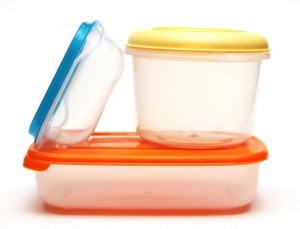By Mary West
Guest Writer for Wake Up World
Could your water bottle or other common household products be giving you migraines? Research shows these debilitating headaches can be triggered by exposure to Bisphenol A (BPA), a chemical found in plastic microwave trays, office water coolers and the linings of canned goods, as well as in food packaging such as plastic bottles and tins.
In the study published in Toxicological Sciences, authors urge migraine sufferers to avoid these sources of BPA. Based on their findings, they believe doing so might reduce the severity and frequency of migraine headaches.
Why is BPA Harmful?
BPA mimics the female sex hormone, estrogen. It disrupts the production, action and elimination of natural hormones, an interference that causes the alteration of human cell structure. When BPA is present in the body, particularly in women, it raises estrogen levels, which leads to a chemical imbalance that may result in migraines. Although steady estrogen levels improve headaches, a change in the levels may exacerbate them.
This synthetic estrogen has already been linked to an array of health disorders, including cancer, heart disease, infertility and obesity. In fact, more than 130 studies implicate it – with devastating health effects.
[pro_ad_display_adzone id=”110028″]
Rats Exposed to BPA Experienced More Headaches
Researchers at the University of Kansas Medical Center had devised a way to test potential headache interventions on lab rats in previous studies. Since migraines are not associated with any specific biomarkers, the only way to diagnose them is through recognition of the symptoms, Nancy Berman, Ph.D., explains. The research team found that rodents with headaches manifest much of the same symptoms as those seen in humans, such as the avoidance of light, sound and routine movements. This revelation made it possible for them to identify factors that may worsen migraines.
To begin the latest study, researchers surgically implanted rats with a cranial cannula to induce headaches. Following this step, they administered BPA once every three days and evaluated the behavior of the rats to assess the effects of the chemical. Within half an hour after the EPA dose, the rodents had higher levels of estrogen and were less active. They also showed signs of tenderness in the head and keep away from strong light and loud noise. Therefore, the conclusion was that the higher levels of estrogen caused by the BPA significantly worsened the migraine headaches.
Fresh Food Diet Reduced BPA Intake by 66 Percent
As BPA is found in so many items people use every day, it may seem daunting to try to avoid this chemical. Yet a similar study found that only a short time of following a fresh food diet could make a big difference.
In the study published in Environmental Health Perspectives in 2011, scientists discovered a fresh food diet intervention reduced urinary BPA by 66 percent in three days. The participants avoided BPA by eating foods that were not canned or packaged in plastic and by storing food in glass or stainless steel containers. Once they returned to their regular diet, their BPA levels returned to the pre-intervention levels. The authors concluded that these dietary measures can significant lower BPA levels and reduce the risk of their associated harmful health effects.
It would be impossible to eliminate BPA completely from your living environment because it is found in so many other goods like shower curtains, cosmetics and car dashboards. However, this study provides proof that the mere adoption of a fresh food diet can be extremely helpful in reducing your exposure to the chemical.
Sources:
- http://www.dailymail.co.uk/health/article-2516645/Migraines-link-plastic-cups-bottles-Gender-bending-chemical-packaging-trigger-attacks.html
- http://www.medicaldaily.com/migraines-linked-bpa-exposure-plastic-cups-and-bottles-increase-sound-and-light-sensitivity-startle
- http://www.newsmaxhealth.com/Health-News/Bisphenol-A-BPA-synthetic-estrogen-migraine-headaches/2013/12/02/id/539481
- http://www.ncbi.nlm.nih.gov/pmc/articles/PMC3223004/
Previous articles by Mary West:
- 9 Natural Ways to Improve Your Indoor Air Quality
- 4 Ways to Know if Your Body Is Overwhelmed By Toxins
- Hugs: The Ultimate Mind-Body Medicine
- Study Finds Exercise Literally Makes Your Brain Grow
- Can One Extra Hour of Sleep Affect Your Day? The Answer Might Shock You
- Big Pharma’s Clinical Drug Trials Are Killing Thousands Overseas
- The Link Between Antidepressants and Murder
- 4 New Reasons to Avoid Pesticides
- Toxic Gene Discovered in GM Crops Shows Approval Process Is Fatally Flawed
- 5 Newly Discovered Health Powers of Asparagus
- Coconut Oil Could Help Fight Tooth Decay
- 8 Ways to Maximize Telomere Length and Increase Life Expectancy
About the author:
Mary West is a natural health enthusiast, as she believes this area can profoundly enhance overall wellness. She is the author of Fight Cancer Through Powerful Natural Strategies, and the creator of alternativemedicinetruth.com, a natural healing website where she focuses on solutions to health problems that work without side effects.
This article was republished with permission from Live in the Now, one of the fastest growing natural health newsletters. Visit LiveInTheNow.com to browse their complete library of articles, or join the nearly 60,000 readers subscribed to their Newsletter.
[pro_ad_display_adzone id=”110027″]







